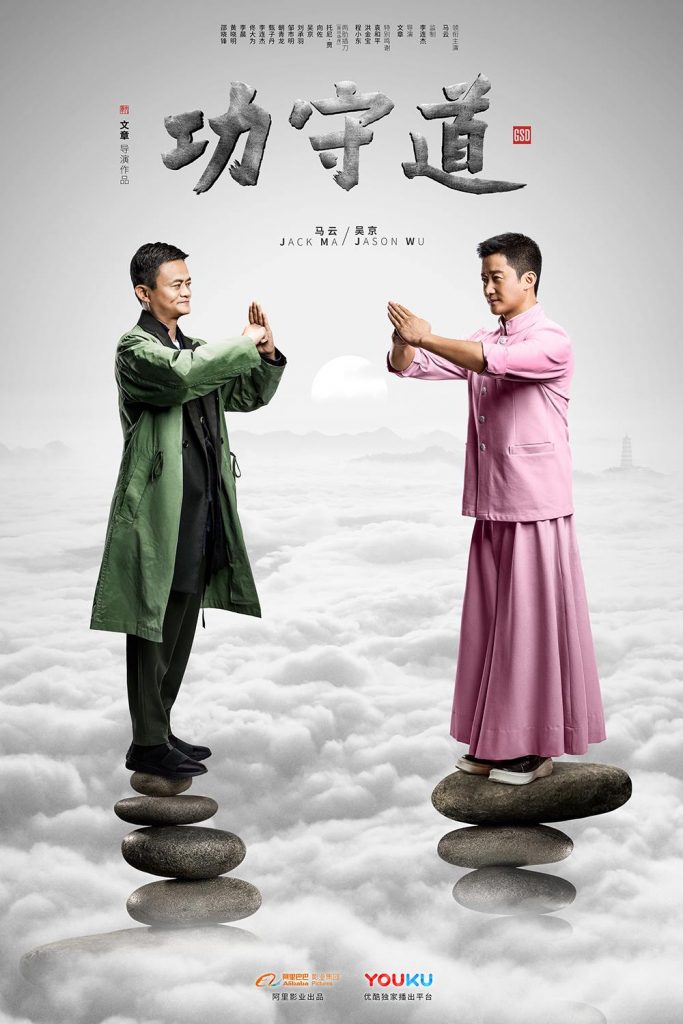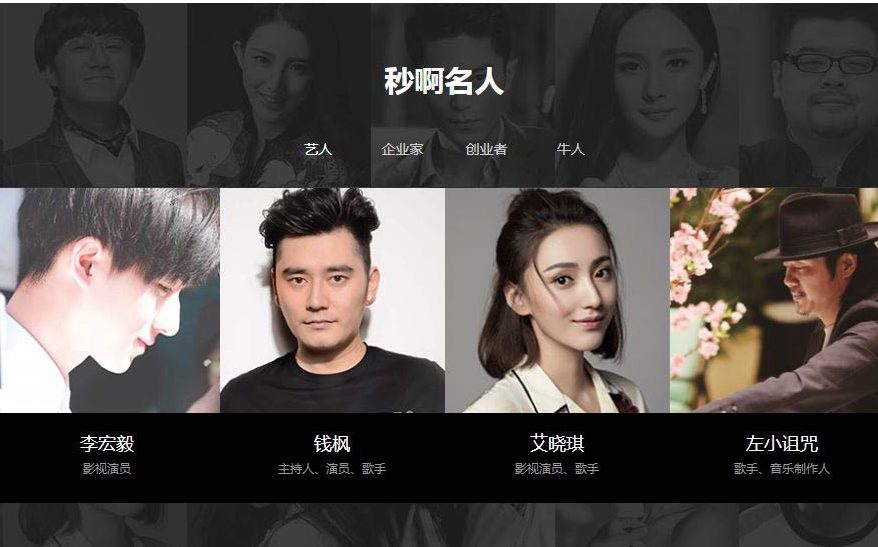Online reaction to the e-commerce mogul’s pop duet proves that we love nothing more than to fawn over the wealthy.

Jack Ma, the founder of Chinese e-commerce giant Alibaba, is more accustomed to seeing his name in the business journals than the entertainment pages of tabloids. But that’s where his name was splashed this week, after promoting a film in which Ma stars alongside Jet Li and, preposterously, sings the film’s theme song with one of China’s most famous popstars, Faye Wong.
Ma is no stranger to singing in public. In the past, he has shown off his best karaoke voice at his company’s Chinese New Year parties and other high-profile events. But Ma and Wong were an odd pairing, both in terms of their vocal style and their contrasting personalities. To put it in context, imagine if Warren Buffett duetted with Rihanna on “Work,” or Jeff Bezos broke out “Better Man” alongside Taylor Swift.
Ma is a mediocre singer, and that’s fine. However, his collaboration with Wong received objectionably effusive praise from Chinese netizens. After music streaming website Xiami exclusively released the song, it rapidly shot to No. 1 on its most played list. Within 24 hours, it had amassed over 10 million listens. One oft-repeated sentiment was typical of the sycophants commenting on it: “So long as you’re rich, anything you sing will sound good.”
Chinese netizens have given the thumbs-up to Ma’s out-of-tune performance because, to them, he is their “dad.” Chinese netizens habitually refer to him in fatherly terms despite having no personal relationship with him. Why do they do it? Because “Dad” is currently the richest man in China, a position that accords him practically unchallengeable social status.
Another man who has won similar affection from Chinese netizens is Wang Sicong, the son of the former richest person in China, real estate mogul Wang Jianlin. Wang Sicong has over 23 million followers on microblogging site Weibo, and anything he says or does on the social media platform inevitably whips up a frenzy of responses from users who casually call him laogong — a term of endearment for one’s husband.
Wang Sicong once specified in his Weibo bio that he was bisexual, so the cries of laogong come from both male and female Weibo users. Although many use the term as a joke, this moniker reflects a deep-seated social envy of his status. Wang Sicong is known as “the people’s husband” because he is the son of a billionaire and, as such, is exceptionally wealthy.
Chinese society, especially the internet-savvy younger generation, is obsessed with celebrity culture. Or, to put it more accurately, we are obsessed with the ultra-rich. Rather than genuinely appreciating Ma or Wang for the content of their character, we filter our affection for them through the principle of monetary value.
Our fixation on the rich comes down to the moral value we have attached to money. Many Chinese believe that if someone is rich, it is most likely because they are more intelligent, diligent, and virtuous than the rest of society, and thus that they are reaping the financial rewards of being better people.
According to this mentality, money not only allows us to buy goods and services. Being rich affects everything: It determines how authoritative our opinions are and shapes our perceptions of what is politically and morally correct.
Public figures like Ma do have laudable qualities, whether it be their bold entrepreneurial spirit or their perceived sense of social obligation. What concerns me are the broader implications of this mentality: If we say that “So long as you’re rich, anything you sing is pleasant to listen to,” does that mean, conversely, that if you’re not rich, no one listens to what you have to say, no matter how sweet your voice is or how truthful you are?
People in all cultures look up to the more powerful members of society. But when taken to the extreme, this mentality reinforces the exclusion of, and prejudice toward, society’s less privileged. If we believe that morality determines wealth and wealth, in turn, reinforces morality, do we thus assume that the poor deserve to be blamed for their own predicament?
Ma is a relatively down-to-earth figure in comparison to some of China’s other billionaires. Wang has a much more outspoken, at times even thoughtless, social media presence. He often writes in crude language and frequently makes derogatory remarks about women. Yet Wang openly admits that he feels entitled to do as he pleases because he is wealthy. He knows that, no matter what he does, it will not have a detrimental impact on his popularity among his fans. After all, whoever dares to criticize him will have to fend off a barrage of online abuse from his horde of incensed “wives.”
Historically, rich men in China financially supported their extended families and friends, and enjoyed a certain amount of prestige and subservience in return. The expectation that those around them should act submissively toward them meant that many wealthy benefactors felt they could act with an impunity not afforded to poorer people. This attitude is prevalent across China even today, for instance, in frequent headline-grabbing tales of rich villagers lording it over their neighbors.
In an age where celebrity worship is eroding the integrity of some of the world’s most respected political institutions, we must be wary of making false equivalences between wealth and merit. Ultimately, these only further marginalize and oppress society’s most disadvantaged. Ma’s turn as a pop singer and Wang’s misogynistic online persona are not the same thing, but they are both predicated on an assumption that deepens social differences: The idea that the rich can act as they please, purely because they have money.
Translator: Lewis Wright; editors: Zhang Bo and Matthew Walsh.
(Header image: Jack Ma poses for a photo during an event in Jiaxing, Zhejiang province, Nov. 15, 2017. Shen Ronghua/VCG)
–This article originally appeared on Sixth Tone.







